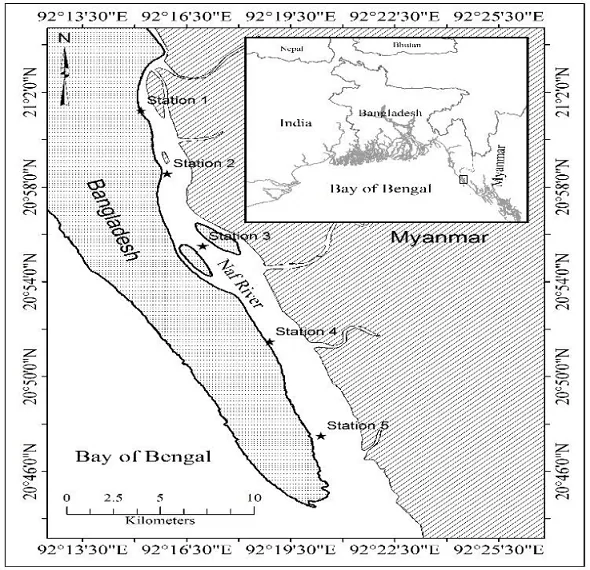Two Bangladeshi fishermen were abducted at gunpoint by members of the Arakan Army (AA), a powerful ethnic armed group in Myanmar’s Rakhine State, from the Naf River near the Whykong border in Teknaf on Wednesday, April 23. The incident comes at a delicate time, as Bangladesh attempts to build informal channels with the group to facilitate the repatriation of Rohingya refugees currently sheltered in Cox’s Bazar.

The victims have been identified as Badsha Alam, 45, and Abul Kalam, 40—both residents of Balukhali village in the Whykong union. According to Sirajul Mostafa, a local Union Parishad member, the two men had ventured out to fish near Boga Island when they were intercepted by armed AA fighters who crossed over from Myanmar. The rebels reportedly seized the fishermen along with their boat and took them back across the river.
“This is not an isolated incident. Fishermen here have been increasingly living in fear. Abductions like these have been happening frequently, but they often go unreported,” said Mohammad Mahafuzur Rahman, a local resident, to the Prothom Alo, the most circulated Bangladeshi daily.
The Arakan Army, formed in 2009, is one of the most influential insurgent groups in western Myanmar. It seeks greater autonomy for the ethnic Rakhine population and has gained significant control over large parts of northern Rakhine State in recent years, particularly after the February 2021 military coup in Myanmar. The group has also clashed with both the Myanmar military and rival ethnic militias, including the Rohingya Solidarity Organization (RSO), further complicating the already volatile situation in the border region.
With the military regime in Myanmar showing little interest in voluntary repatriation of the Rohingya, some policymakers and observers in Dhaka have advocated for establishing informal ties with the Arakan Army as a possible alternative channel for ensuring safe return conditions. The group’s recent statements indicating a willingness to support Rohingya repatriation have fuelled such expectations, even as concerns linger about its past role in marginalising Rohingyas.
However, Wednesday’s abduction raises serious questions about the viability of any rapprochement. This incident, while tragic, underscores the difficult balancing act Bangladesh faces. On the one hand, there is a need to engage with the de facto powers in Rakhine; on the other, such engagements cannot overlook cross-border security risks.
Lieutenant Colonel Mohammad Jasim Uddin, commander of the Border Guard Bangladesh (BGB) 64 Battalion, which is responsible for security in the area, stated that fishing in that part of the Naf River is officially prohibited due to safety concerns. “The fishermen violated the restriction. Nevertheless, we are taking the matter seriously and looking into it. No formal complaint has yet been filed by the families,” he told the Prothom Alo.
Meanwhile, Teknaf Upazila Nirbahi Officer Sheikh Ehsan Uddin confirmed that local authorities had been informed of the abductions and were in the process of gathering more information.
As Bangladesh continues to navigate complex regional dynamics, including its ongoing refugee crisis and deteriorating security at its borders, the latest incident highlights the dangers of relying on non-state actors for diplomatic solutions—and the urgent need for a coherent policy on dealing with armed groups like the Arakan Army.







